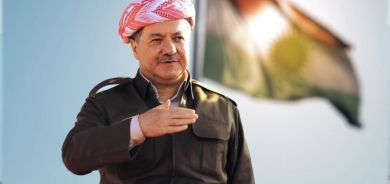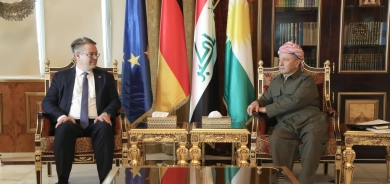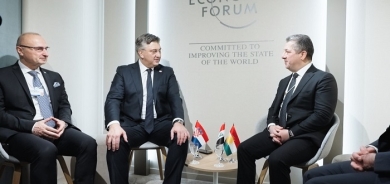THE CURRENT SITUATION REGARDING THE KURDS, IRAQ, AND THE AREA

However, before surveying this new climate, it also should be noted that the Kurdish version of the Arab Spring did not just begin in 2011, but in some ways has been going on for decades: In Turkey (at least since the Kurdistan Workers Party (PKK) formally began its insurgency in August 1984), as well as in Iraq since the days of Mulla Mustafa Barzani beginning in the early 1960s, but especially since the end of the two U.S. wars against Saddam Hussein in 1991 and even more in 2003. These two wars led to the creation of the Kurdistan Regional Government (KRG) in northern Iraq, the most successful attempt at Kurdish statehood in modern times. On a lesser scale Iran too has long been going through its own off again/on again Kurdish Spring, the Mahabad Republic in 1946 being the most famous example. Although the Iranian Kurds are bitterly divided into several competing parties, constant protests and even armed struggle by the Kurdistan Free Life Party (PJAK), ensconced in the Iraqi Kandil Mountains just across the border from Iran, continue today. Recently, however, the Iranian Kurds have reached a truce among themselves, while PJAK also seems to have reached a temporary accommodation with Teheran. Finally in Syria, where until the civil war against the Assad regime broke out in March 2011, the Kurdish influence was much less important because the Kurdish population was much smaller and not as geographically united as it is in the other three states. Now, however, with help from the KRG and others, the Kurds in Syria have broken out of their muted and divided existence in effect to join the anti-Assad movement: First in protest against the assassination on October 7, 2011 of Mishaal Tammo, one of their most promising leaders, and subsequently as part of the much larger revolt against the Assad regime.
IRAQ
In Iraq, of course, these goals of the Kurdish Spring have achieved their greatest success following the war in 1991 and the KRG’s constitutional recognition after the war in 2003. Indeed, the KRG currently has all the trappings of an independent state: its own president, prime minister, and parliament; its own flag and national anthem; its own army that even prevents Baghdad’s army from entering the Kurdish region; its own international airports and educational system in which few any more even bother to learn Arabic; and even its own stamp entered into the passports of visitors.
However, many wonder what will happen to the KRG now that the remaining U.S. troops have been withdrawn from Iraq as of the end of 2011. Earlier the KRG and Baghdad had already come perilously close to blows over Kirkuk and their disputed internal border often referred to as “the trigger line,” Khanaqin in 2008 being a prime example. Recently, Baghdad and the KRG also almost came to blows over a border crossing into Syria.
In the meanwhile, moreover, the Iraqi Kurds have further developed their own Kurdish Spring, first when the anti-corruption Gorran (Change) Party split the long-entrenched Patriotic Union of Kurdistan (PUK) in the KRG elections held on July 25, 2009, and subsequently when violent demonstrations broke out in Sulaymaniya on February 17, 2011, the KRG’s second largest city, and continued until forcibly curtailed by the KRG leadership on April 19, 2011.
Most of the demonstrators were protesting against corruption, nepotism and the lack of effective services such as jobs and electricity. Intellectuals and journalists also protested against limitations against speech and press as well as daily harassment. Among all there was a deep anger against the Barzani’s Kurdistan Democratic Party (KDP) and Talabani’s Patriotic Union of Kurdistan (PUK) family domination over society and government.
Unlike the objects of the Arab Spring demonstrators, however, the KRG had just been democratically elected in July 2009 and thus was not so readily able to be denounced as illegitimate. The KRG also was able to prevent demonstrations from breaking out in Irbil, its capital and largest city by closing the universities, sending the students home, and banning large gatherings. Peace has returned to the KRG, but the anti-KRG demonstrations that did occur in the Spring of 2011 constituted a serious wake up call that all was not well and a renewed dedication to democracy and fairness to all Kurdistani citizens was necessary!
The Iraqi Kurds played a major role in helping Nouri al-Maliki form his new Iraqi government in Baghdad at the end of 2010 in return for Maliki’s vague promises to support the KRG’s agenda regarding Kirkuk and oil revenues. However, at a KDP conference in Irbil to help patch Maliki’s new coalition together and at which Maliki was in attendance, KRG president Massoud Barzani declared that the Iraqi Kurdish region had the right of self-determination.
When Maliki assumed power again, relations between Baghdad and the KRG began to deteriorate. Since Maliki was unable to complete his new cabinet, he also personally assumed control of several leading ministries leading to charges that he was becoming a new dictator. Then in January 2012, Maliki issued a warrant for the arrest of Vice President Tariq al-Hashemi, the highest ranking Sunni in his Shiite-dominated government, on charges of having led death squads in the past. Hashemi denied the charges and fled to the Kurdish region and then Turkey where he was granted protection. Early in September 2012, al-Maliki’s government sentenced al-Hashemi to death in absentia but Turkey refused to extradite him.
Iraq and Turkey are also at odds over a recent deal between Ankara and the Iraqi Kurdish administration allowing the Iraqi Kurds to export oil and gas through Turkey. Among other factors that deepened tensions between Turkey and Iraq is Turkish Foreign Minister Ahmet Davutoğlu's controversial visit to Kirkuk in August 2012. On September 27, 2012, Maliki turned down an invitation to attend Turkish prime minister Recep Tayyip Erdogan’s ruling AKP conference. Both Barzani and Talabani, however, will attend.
For a long time solutions to the perennial problems of Kirkuk and the sharing of oil revenues also proved impossible to solve. However, in September 2012, the two sides once again seemed to have reached a partial understanding on extracting and exporting oil from the Kurdistan region. Some felt that this might lead to better relations.
However, U.S. senator John McCain, who had been the unsuccessful Republican candidate against U.S. president Barrack Obama in 2008, had already noted the rising tensions and declared that “the situation in Iraq is unraveling. . . . Iraq will likely break up which would eventually lead to the formation of three different States. McCain’s suggestion reminded one of then U.S. senator and now vice president Joseph Biden’s three-state solution back in 2007.
In a flurry of activity, Barzani journeyed to the United States, Turkey, and Europe for well-publicized meetings. His talks in Turkey were especially noteworthy given how relations between the two sides had improved so dramatically in the past few years. Turkey was now taking the KRG’s side in disputes with Baghdad. Turkish prime minister Recep Tayyip Erdogan accused Maliki of fanning tensions in Iraq with the Kurds, while Maliki denounced Turkey for its “flagrant interference in Iraqi internal affairs.” The following month, Nechirvan Barzani, the new KRG prime minister and the nephew of Massoud Barzani, also journeyed to Turkey for yet another high-level Turkish-KRG meeting. With such Turkish support, the KRG might indeed be emboldened to secede from a crumbling Iraq. Only time would tell. Turkey, of course, would be very careful about fanning the flames of pan- Kurdish nationalism that would certainly follow from a declaration of independence on the part of the KRG.
Back in Irbil, Barzani suggested that Baghdad might use the 18 F-16 fighter jets it was scheduled to purchase from the United States to once again subdue the Kurds. The KRG president demanded that Maliki agree on sharing power with his political opponents by September 2012 “or else the Kurds could consider breaking away from Baghdad.” There was a “very dangerous political crisis in the country,” and unless the impasse was broken “voters in the Kurdish region may consider a referendum for a state independent of Iraq.” September of course has now come and gone, but the KRG still remains part of Iraq.
Therefore, despite Barzani’s strong words, most observers feel that he was really maneuvering for position in post-U.S. Iraq. Premature Kurdish independence that would be seen as destroying Iraq, would be opposed by not only the United States, but all the KRG’s regional neighbors. What is more, the KRG continued to enjoy in federal Iraq all the advantages of independence without its disadvantages. It would be far better for the Iraqi Kurds to be seen as doing their utmost to keep Iraq united. Only if the Kurds’ best efforts failed and Iraq still split apart, would the Kurds then be seen as having had independence forced upon them and therefore justified. On the other hand, other options such as supporting a vote of no confidence against Maliki failed. Therefore, patience and astute diplomacy remained the main call words.
CONCLUSION
Second only to the perennial Arab-Israeli dispute, Kurdish nationalism remains a continuing and leading factor of instability in the geostrategically important Middle East. Furthermore, since the Kurds sit on a great deal of the Middle East’s oil and possibly even more important water resources, Kurdish nationalism probably will become increasingly more salient in the coming years. The Kurdish Spring that has followed in tandem with the Arab Spring since 2011 clearly illustrates this situation.
Unlike the Arab-Israeli dispute, however, the Kurdish issue no longer seems intractable as the Kurds have actually established an autonomous state in northern Iraq, the KRG. Although this entity’s future remains somewhat uncertain, relative to many of the other states in the Middle East, the KRG situation remains encouraging. For example, the KRG has been acting like an independent state negotiating with Turkey over the current situation in Syria and granting discreet aid to its Kurdish brethren in that war-torn country. Given continuing U.S. diplomatic backing as well as wise KRG leadership, it is possible to believe that the KRG will be able to survive and even prosper amidst all the birth pangs of the continuing Arab and Kurdish Springs in the Middle East.

 Michael Gunter
Michael Gunter











